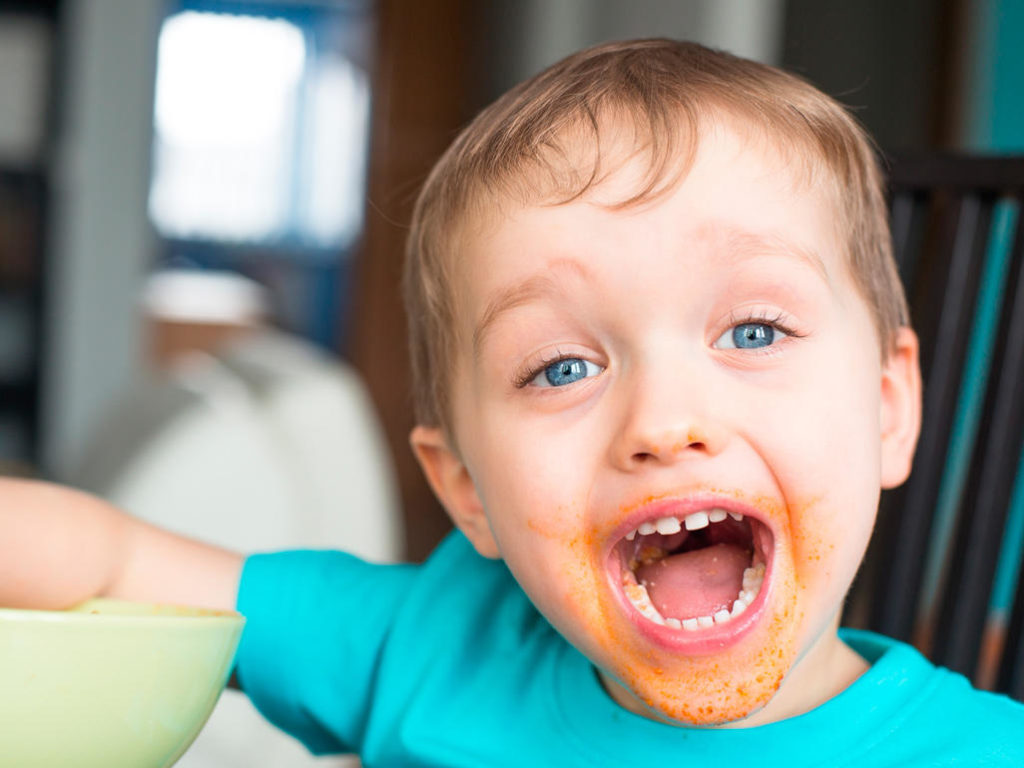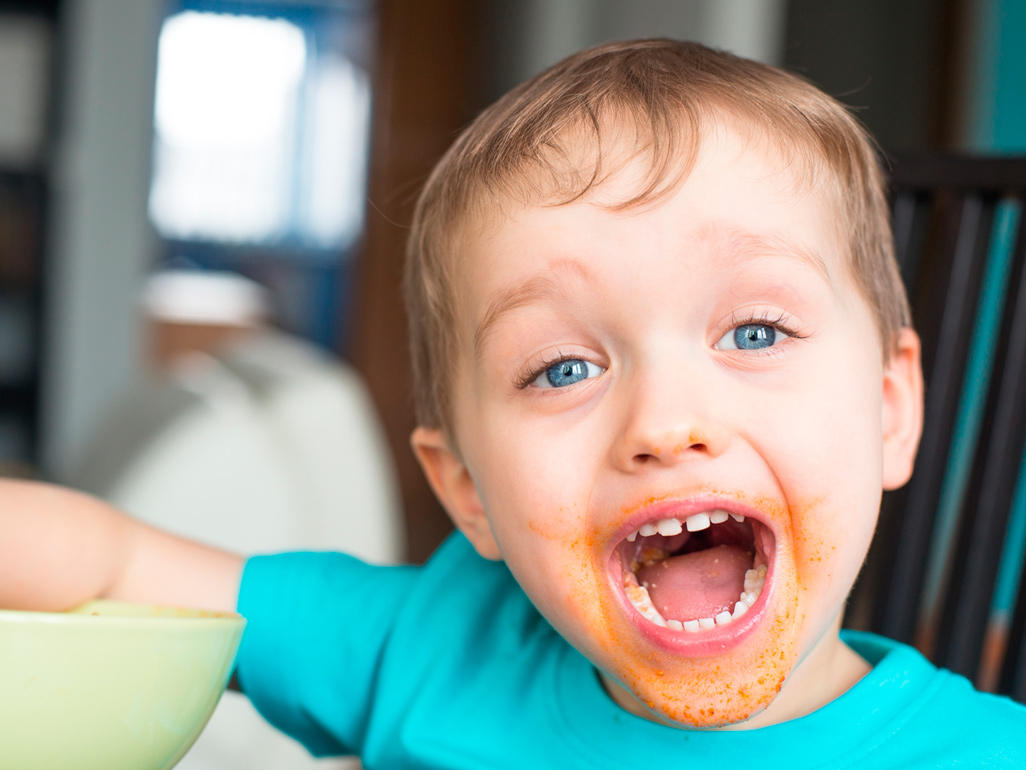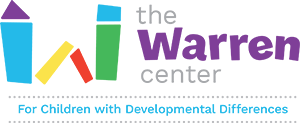
Guide to Developmental Milestones and Feeding Skills From Birth to 36 Months

The following checkpoints on developmental milestones and corresponding oral motor skills provide markers for parents and caregivers. If you notice a child struggling in one of the areas, intervention programs like feeding therapy, physical therapy, speech therapy, and occupational therapy can help children develop the skills to attain the nutrients they need and prevent other problems down the line.
Developmental Milestones and Feeding Skills From Birth to 36 Months
Monitoring important developmental milestones and corresponding feeding skills can ensure that a child makes expected progress during the first three years of life. The first three years involve foundational developmental of structures like the lips, tongue, jaw, teeth, and palates. Learning to coordinate these structures enables safe chewing and swallowing of different textures as well as other abilities like speaking. By age four, most children can consume solids and liquids without choking and express themselves through speech.
Birth to 4-6 Months
Developmental Milestones:
- Visual fixation on objects
- Tracking objects with eyes
- Discovering how to control body against gravity
- Increased flexor and extensor tone
- Rolling over
- Bringing hands to mouth
- Sitting up with support around age 6 months old
Corresponding Feeding Skills:
- Nipple feeding via breast or bottle
- Hand on bottle during feeding by around age 2-4 months old
- Can maintain a semi-flexed posture during feeding
- Engaged social interaction between caregiver and baby during feeding
6 Months to 9 Months (Transition Feeding)
Transition feeding refers to the gradual introduction of non-liquid foods. Reaching developmental milestones will ensure that your child has the feeding abilities to switch smoothly to solids and attain the nutrients required for continued growth.
Developmental Milestones:
- Sits independently for short amounts of time
- Self-oral stimulation with hands or teething toys
- Extended arm reach
- Starts using pincher grasp
- Visual interest in small objects
- Stranger anxiety
- Crawls on belly
- Creeps on all fours
Corresponding Feeding Skills:
- Begins feeding in a more upright position
- Starts spoon feeding (thin, smooth purees)
- Drinking suckle pattern changes (goes from suckle to firm/established suck)
- Uses both hands to hold bottle
- Starts on finger foods
- Vertical consumption of easy-dissolving solids
- Prefers to be with parents or primary caregivers during feeding
9 Months to 12 Months
Developmental Milestones:
- Pulls up to stand
- Cruise along furniture with enjoyment
- Enjoys assisting caregiver during spoon feeding (some children begin to use spoon independently)
- Continued success with pincher grasp
- First steps by around 12-month-old
Corresponding Feeding Skills:
- Begins cup drinking
- Can consume mashed, lumpy foods
- Finger foods include easy-dissolving solids for greater independence
- Chewing now incorporates rotary jaw movement
12 Months to 18 Months
Developmental Milestones:
- Rapid development of gross and fine motor skills
- Child walks independently
- Begins running and climbing stairs
- Can grasp objects with precision and release with intention
Corresponding Feeding Skills:
- Engages in self-feeding by holding the spoon with whole hand
- Holds a cup with two hands
- Drinks with at least 4 to 5 consecutive swallows
- Can hold and tip a bottle
18 Months to 24 Months
Developmental Milestones:
- Improved balance and equilibrium
- Better coordination of the upper extremities
- Increased focus and persistence during games and activities
- Imitation of others
- Greater independence from parents
- Using tools during play
Corresponding Feeding Skills:
- Can swallow with lip closure
- Self-feeding becomes primary
- Chews food with a variety of textures
- Precise and rhythmic up-and-down tongue movement
24 Months to 36 Months
Developmental Milestones:
- More refined motor skills
- Begins to jump in place
- Practices pedaling on tricycle
- Begins using child-safety scissors during play activities
Corresponding Feeding Skills:
- Chews with lips closed
- Holds cup with one hand
- Begins drinking from open cup without spilling
- Uses fingers to fill spoon
- Can eat solid food with a variety of textures
- Chewing now includes circulatory jaw rotations
- Begins using fork
- Total self-feeding predominates
Contact The Warren Center for any questions about your child’s progress or for information about a host of available services.


